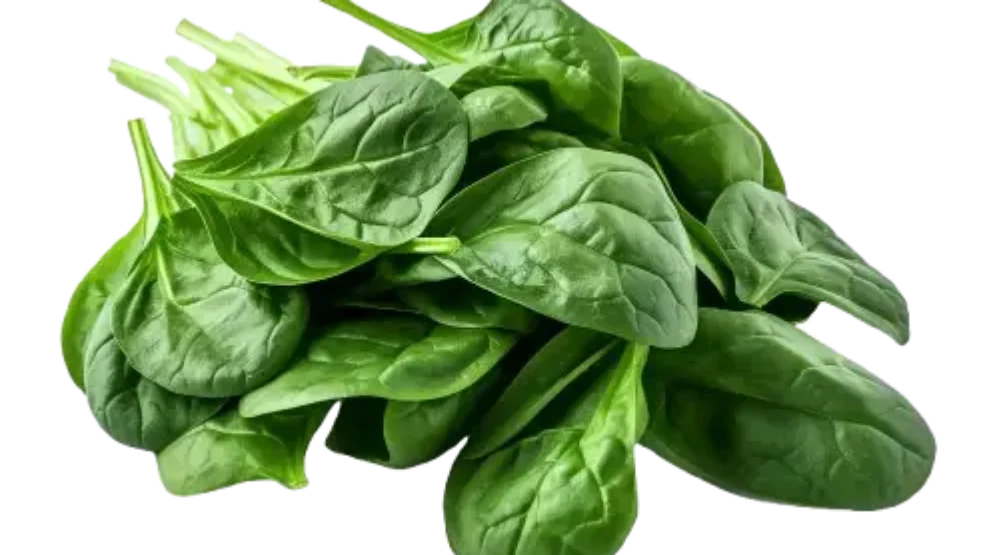Spinach (Spinacia oleracea) is a leafy green vegetable known for its nutrient density, versatility, and medicinal properties. Native to Iran, spinach has been cultivated for centuries and is now widely grown in Europe, North America, and Asia. Packed with vitamins, minerals, antioxidants, and fiber, spinach is recognized for its heart health benefits, digestive support, and immune-boosting properties.
Spinach (Spinacia oleracea) – A Comprehensive Guide
This guide explores its history, nutritional profile, health benefits, medicinal uses, cultivation, and recipes.
Historical Significance & Cultural Importance
Spinach has played a significant role in traditional medicine, agriculture, and culinary traditions across various civilizations.
Spinach in Ancient Traditions
- Persian Origins: First cultivated in Persia, later introduced to India and China.
- Arab Influence: Brought to Spain by the Moors, where it became a staple vegetable.
- European Renaissance: Spinach gained popularity due to its high iron content and medicinal properties.
- Modern Nutrition: Promoted as a superfood due to its rich vitamin and mineral profile.
Botanical Description
Spinach belongs to the Amaranthaceae family and is classified under the Spinacia genus.
Plant Characteristics
- Growth: Annual plant, reaching 30 cm in height.
- Leaves: Broad, dark green, with a slightly crinkled texture.
- Flowers: Small, yellow-green, inconspicuous.
- Seeds: Round or spiky, depending on the variety.
Cultivation & Growing Conditions
Spinach thrives in cool, temperate climates and requires well-drained soil.
- Ideal Temperature: 10–20°C for optimal growth.
- Soil Type: Loamy, slightly acidic soil with good drainage.
- Propagation: Grown from seeds.
- Harvesting Season: Spring and autumn, depending on the variety.
Nutritional Profile of Spinach
Spinach is rich in essential nutrients, making it a superfood for overall health.
Nutrients in Spinach (Per 100g Serving)
| Nutrient | Amount | Health Benefits |
|---|---|---|
| Vitamin A | 469µg | Supports vision & skin health |
| Vitamin C | 28mg | Boosts immunity & collagen production |
| Vitamin K1 | 482µg | Essential for blood clotting & bone health |
| Iron | 2.7mg | Supports blood circulation & prevents anemia |
| Magnesium | 79mg | Supports muscle & nerve function |
| Fiber | 2.2g | Supports digestion & gut health |
Health Benefits of Spinach
1. Supports Heart Health & Blood Pressure Control
- Reduces LDL (bad cholesterol) and boosts HDL (good cholesterol).
- Improves blood circulation, preventing heart disease.
- Lowers blood pressure, reducing hypertension risk.
2. Boosts Immunity & Fights Infections
- Rich in Vitamin C, strengthening immune defenses.
- Antioxidants neutralize free radicals, preventing cell damage.
- Protects against seasonal illnesses, including cold and flu.
3. Enhances Skin Health & Anti-Aging
- Beta-carotene improves skin glow, reducing dark spots and wrinkles.
- Vitamin C boosts collagen production, improving skin elasticity.
- Hydrates and nourishes, preventing dryness and dullness.
4. Supports Digestion & Gut Health
- High fiber content aids digestion and prevents constipation.
- Balances gut bacteria, reducing bloating and acidity.
- Stimulates gastric juices, improving nutrient absorption.
5. Aids in Weight Loss & Metabolism
- Boosts metabolism, helping burn fat faster.
- Suppresses appetite, reducing cravings.
- Detoxifies the body, eliminating toxins that slow weight loss.
6. Helps Manage Diabetes Naturally
- Regulates blood sugar levels, preventing spikes.
- Improves insulin sensitivity, reducing diabetes risk.
- Contains polyphenols, which protect pancreatic cells.
7. Supports Brain Health & Cognitive Function
- Enhances memory and focus, reducing brain fog.
- Protects against neurodegenerative diseases like Alzheimer’s.
- Reduces stress and anxiety, promoting mental clarity.
Medicinal Uses of Spinach
1. Spinach Juice for Immunity & Detox
- Recipe: Blend 2 fresh bunches of spinach, strain, and add honey for taste. Drink daily for immune support.
2. Spinach Powder for Digestion & Gut Health
- Usage: Dry and grind spinach leaves, mix ½ tsp powder with warm water. Drink before meals for gut health.
3. Spinach Leaf Extract for Blood Sugar Control
- Usage: Boil spinach leaves, strain, and drink as tea to regulate blood sugar and improve digestion.
4. Spinach Vinegar for Heart Health
- Recipe: Ferment spinach juice with apple cider vinegar for a cholesterol-lowering tonic.
How to Include Spinach in Your Diet
- Raw Spinach – Eat fresh for maximum benefits.
- Spinach Juice – Drink daily for detoxification.
- Spinach Zest – Sprinkle on salads or yogurt.
- Spinach Leaf Tea – Brew dried leaves for a healthy drink.
- Spinach Smoothies – Blend with banana and coconut water.
Side Effects & Precautions
While spinach is generally safe, excessive consumption may cause:
- Oxalate buildup, leading to kidney stones in sensitive individuals.
- Blood thinning, due to high vitamin K content.
- Digestive discomfort, if eaten in excess.
Conclusion
Spinach (Spinacia oleracea) is truly a superfood, offering unmatched health benefits for digestion, immunity, skin health, heart function, brain health, and weight management. Whether consumed raw, as juice, powder, or tea, it remains a powerful natural remedy for overall wellness.
Start incorporating spinach into your daily routine and experience its incredible benefits.




